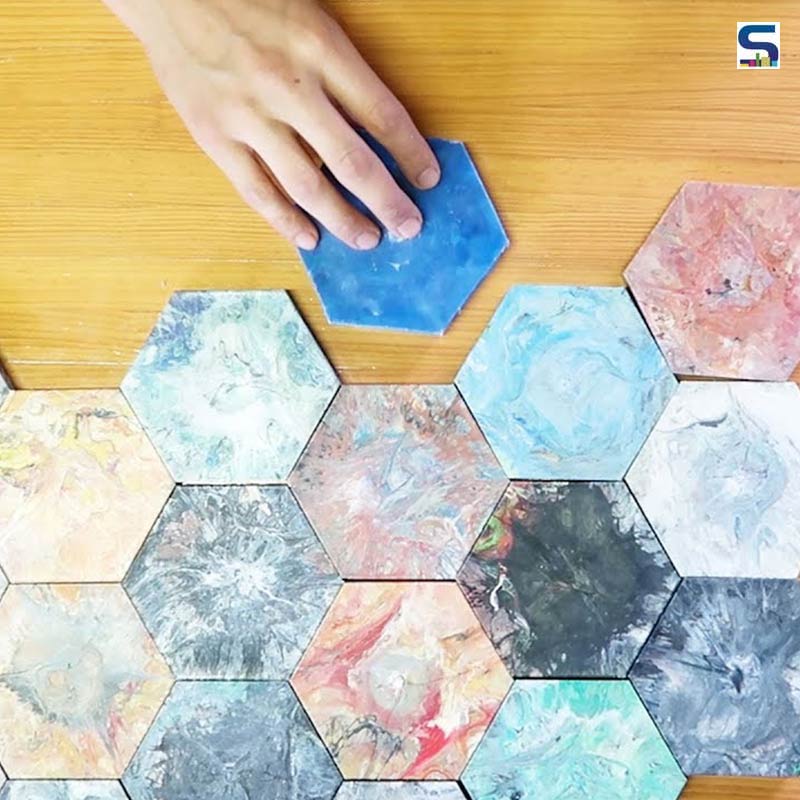
A cement-free wall tile from waste polythene has been recently developed by the Indian Institute of Technology-Roorkee (IIT-R) in association with a Roorkee-based engineering service unit YB Scientific R&D Solutions. Read more about their work on SURFACES REPORTER (SR).
In order to create Prayaspr tiles in an environmentally-friendly way, the group – comprising Prof Prasenjit Mondal, Hemant Goyal, Navneeta Lal, Department of Chemical Engineering, IIT-R and Yash Dua, YB Scientific R&D Solution Roorkee – sourced polythene from waste milk and oil packets. Prayaspr aims at recycling waste polyethylene packets for the development of cement-less paver blocks. For this, the plastic packets are shredded to form granules, which are then mixed with additives to soften. The mixture further forms a slurry which is then molded in a hydraulic press to form blocks. The waste plastic acts as a binding agent while waste stone dust is used as an additive alongside some dying chemicals. For this, the team used 250 gm of plastic waste. The team informs that to cover 1 sqft surface area, nearly 1.5 kg of waste plastic is required.
Reportedly, these tiles would possess the same tensile strength as regular tiles and would also cost less than usual tiles. They also have a better interlocking and aesthetic look and a long lifetime. Besides having a fair resale value, these tiles are non-breakable.
The production cost of a paver block is Rs 45 per sqft which is slightly competitive with the conventional paver blocks that are easily available in the market. As for a single piece, the production price is Rs 7-Rs 8. The tiles are expected to be more economic than paver blocks with per sqft production cost of nearly Rs 14. Prayaspr tiles are suitable for building and monument premises, landscapes, public gardens and parks, domestic drives, paths and floor tiles.
Image credits: One Army (for representational purpose)